I am often asked if homeschool nature study can substitute for a more formal science program for homeschooling families.
I can’t make a blanket answer in response to everyone but I can perhaps share some quotes, links, and my own reflections on this topic.
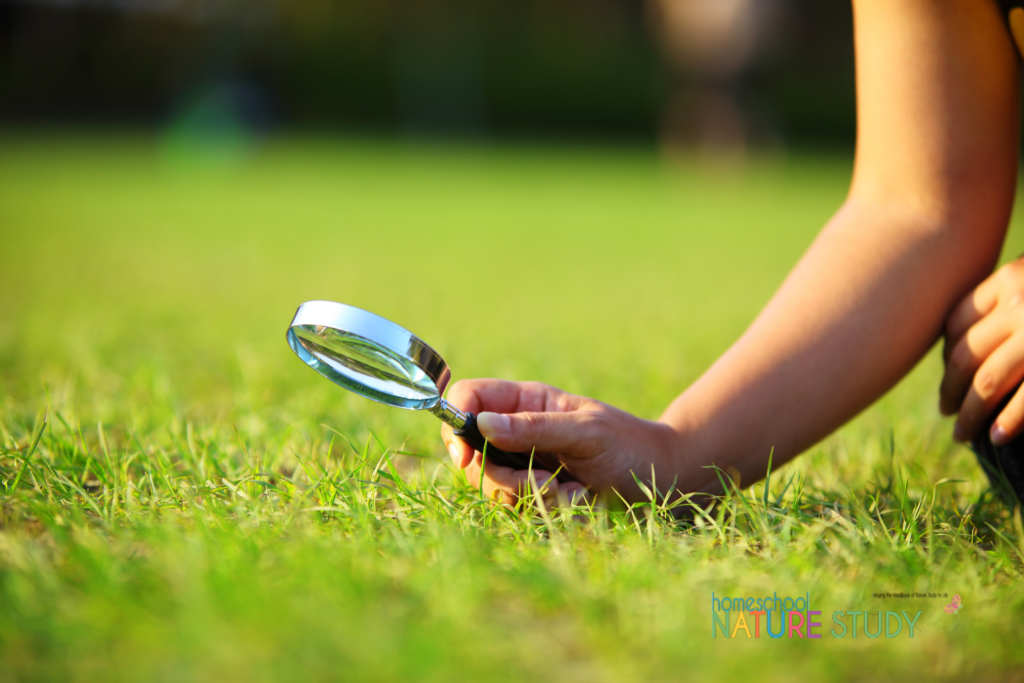
Homeschool Nature Study or Science?
“Mrs. Comstock believed that the student found in such a study a fresh, spontaneous interest which was lacking in formal textbook science, and the phenomenal success of her work seems to prove that she was right. Moreover, nature-study as Mrs. Comstock conceived it was an aesthetic experience as well as a discipline. It was an opening of the eyes to the individuality, the ingenuity, the personality of each of the unnoticed lifeforms about us. It meant a broadening of intellectual outlook, an expansion of sympathy, a fuller life.”
Handbook of Nature Study Publisher’s Foreword 1939
I believe in the younger grades that our responsibility as parents is to open the eyes of our children to the world around them, exposing them to real things and real places. I have long said here on this blog that it makes no sense to me to teach our children about the rainforest if they haven’t even learned about the trees and animals in their local habitat. The younger years are the time to get outside and take walks and look at real things up close and form memories and impressions. There is a time for books and textbooks (in limited amounts) but that can come later.
In the younger years, we should be more concerned with creating that direct contact with nature and not the memorizing of facts about things we haven’t encountered in real life. Nature study should include those objects most often seen and encountered during your outdoor time. The flowers, trees, birds, insects, and rocks that are found in your own yard or neighborhood are the perfect start to your nature study experiences. The best way to teach nature study is not by setting out a rigid course of study but to be aware of topics that are all around you and one by one to make observations and to learn as a family.
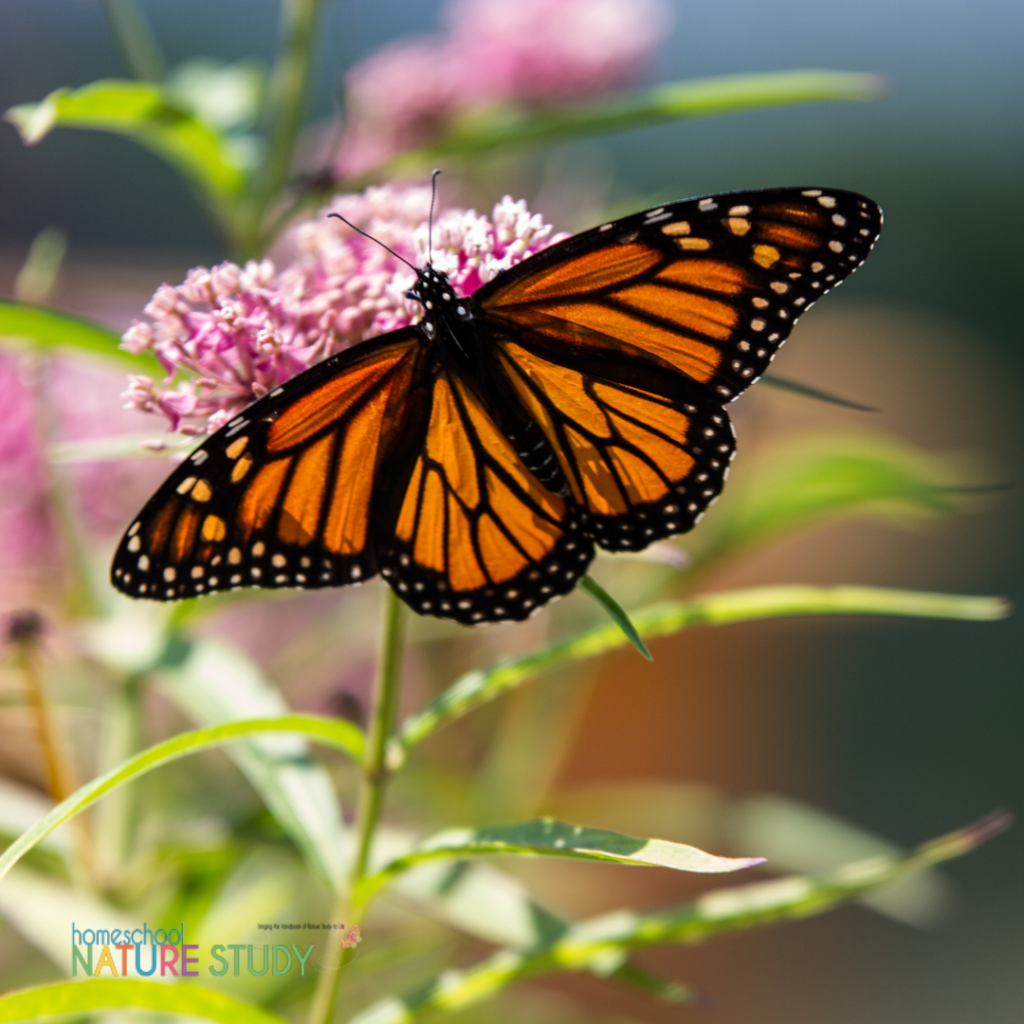
Homeschool Nature Study in the Younger Years
For instance, you could read about a monarch in a book, noting the illustrations and the scientific facts about this beautiful butterfly. This may soon be forgotten. But, if you are out in your garden or on a nature walk and come across a monarch butterfly that maybe has a tattered wing, your child might just want to know about where it came from and why it has a few ragged edges on its wings. They care about the real butterfly. Their personal experience with this insect will now give the reading about it in a book more meaning. This butterfly now has a story and your child might be more inclined to tell that story in their own words either orally or on paper. The correlation between what they saw in the garden and what they have learned about the monarch may even spur them to act in behalf of that monarch by planting a butterfly garden with milkweed or participate in a citizen science project where they tag monarchs.
“…when he (the teacher) is concerned chiefly with the effects of the lesson upon the development of the child he is probably teaching Nature Study.”
This is so different than teaching science that emphasizes the taking in of a preset number of facts and topics each year. Textbooks were created to conveniently teach the same set of information to a large number of students. This is usually followed by some sort of quiz or test that supposedly measures the learning of these facts and topics. In my homeschooling experience, textbooks actually got in the way of any actual learning. The meaningful learning in science (and nature study) occurred when we formed our own relationships with the material and sought out experiences and books that would feed our interest. There was no need for a test and most of the important things we learned were skills in observation and in building an appreciation for the creation in our world.
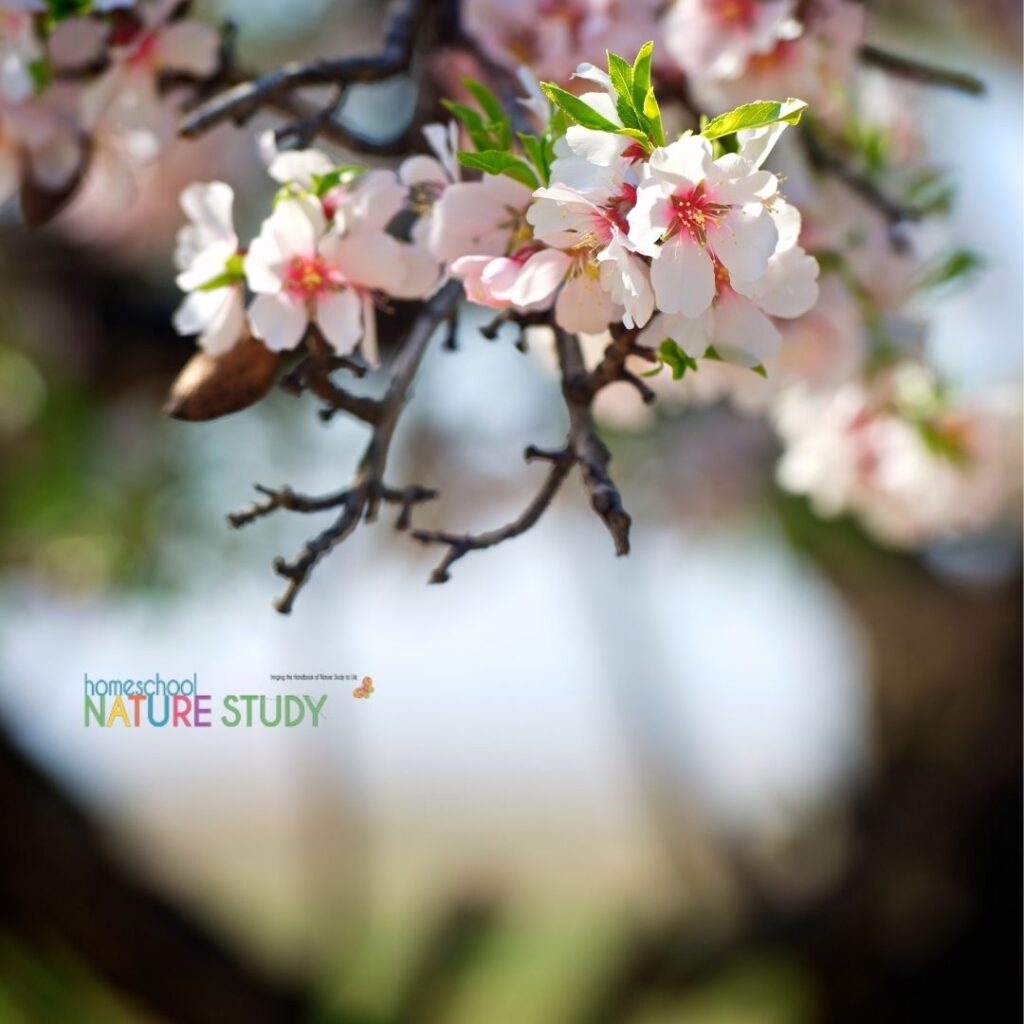
“Nature Study is the creating and the increasing of a loving acquaintance with nature.” Bigelow
“To put the pupil in a sympathetic attitude toward nature for the purpose of increasing the joy of living.” L.H. Bailey
“The educational value of Nature Study lies in its power to add to our capacity of appreciation-our love and enjoyment of all open air objects.” John Burroughs
It would be ideal if all nature study could be spontaneous but that hardly seems practical in our busy homeschooling lives. For ease of scheduling, there must be some provision for getting outside each week (or in a perfect world it would be every day). Aim for three things in your nature study: to really see what you are looking at with direct and accurate observation, understand why the thing is so and what it means, and then to pique an interest in knowing more about the object.
The Educational Value of Nature Study
“Nature Study- It is the intellectual, physical, and moral development by and through purposeful action and reaction upon environment, guided so far as need by, by the teacher.” John Dearness, 1905
Here is an example from this same Google Book:
“Children hunting a lost ball in a meadow adjoining the play-yard discover a ground bird’s nest with four blotched eggs. Their interest is aroused. They describe the nest to the teacher and inquire to what kind of bird it belongs. Unfortunate for them if he is a scientist enough and unpedagogical enough to say at once: It is a bob-o-link’s nest. Better were he a good teacher and no ornithologist, for then he would use their interest to lead to some educational activity which would be far more useful to them that the mere information they seek. But best of all if the teacher knows well both children and birds. In that case he can guide them to discover the answer to their question in an educative way, and in doing so excite them to ask and answer by research many other related questions. He engages their interest at the favorable moment to train them to observe, think, investigate and enjoy. This is Nature Study.”
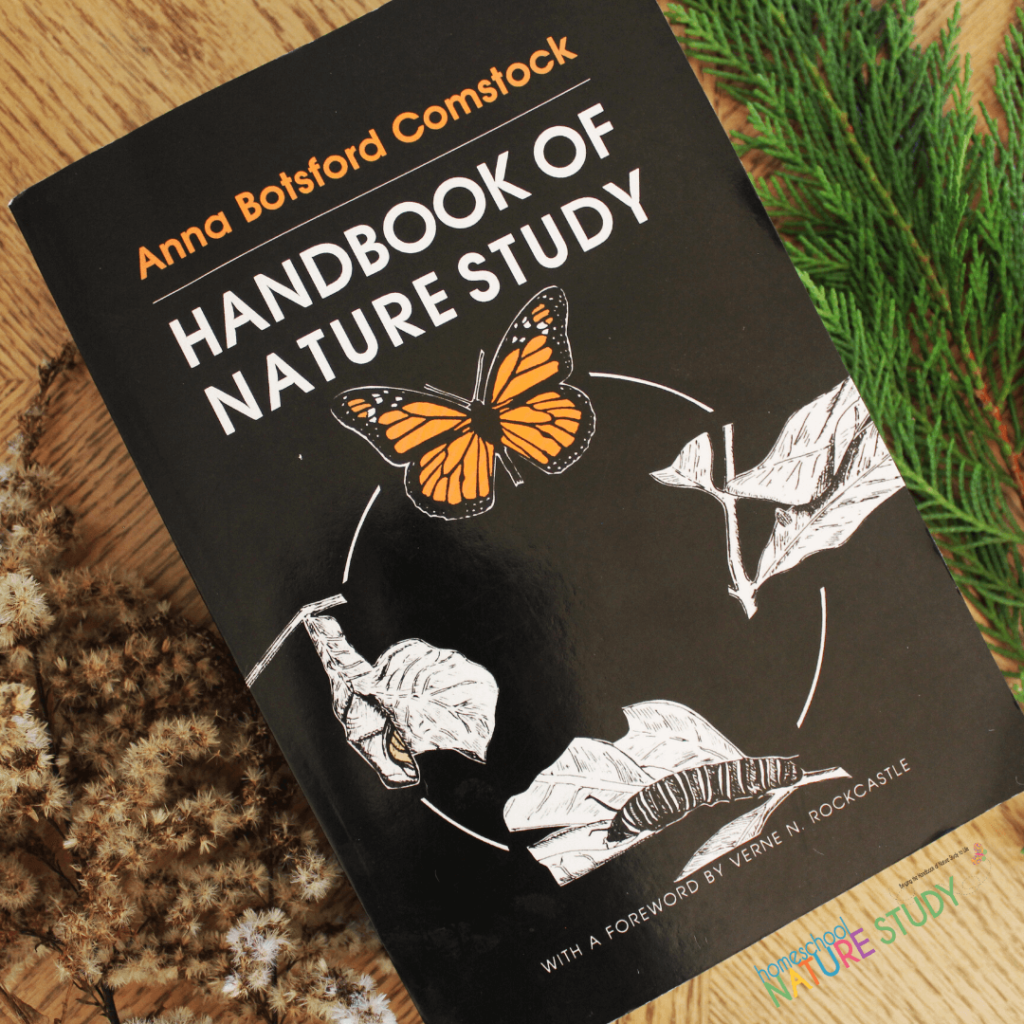
The Handbook of Nature Study is not a textbook. It is not a field guide. It isn’t the sort of book you will start reading from the front and read straight through until the end.
Rather, the Handbook of Nature Study is a reference guide for the parent to use in familiarizing themselves with particular nature study topics. It gives a short narrative for each item and then a “lesson” of sorts that is actually just a great list of ideas for direct observation when you happen upon the object in real life. I have found that the more I read it ahead of time (as in preparing for a particular Outdoor Hour Challenge), the more prepared I am when we finally see a subject during our outdoor time, either in our yard, neighborhood, or on a hike. I can be like the good teacher in the quote above that leads the child to make their own inquiries and connections to discover more about something they found of interest on their nature walk.
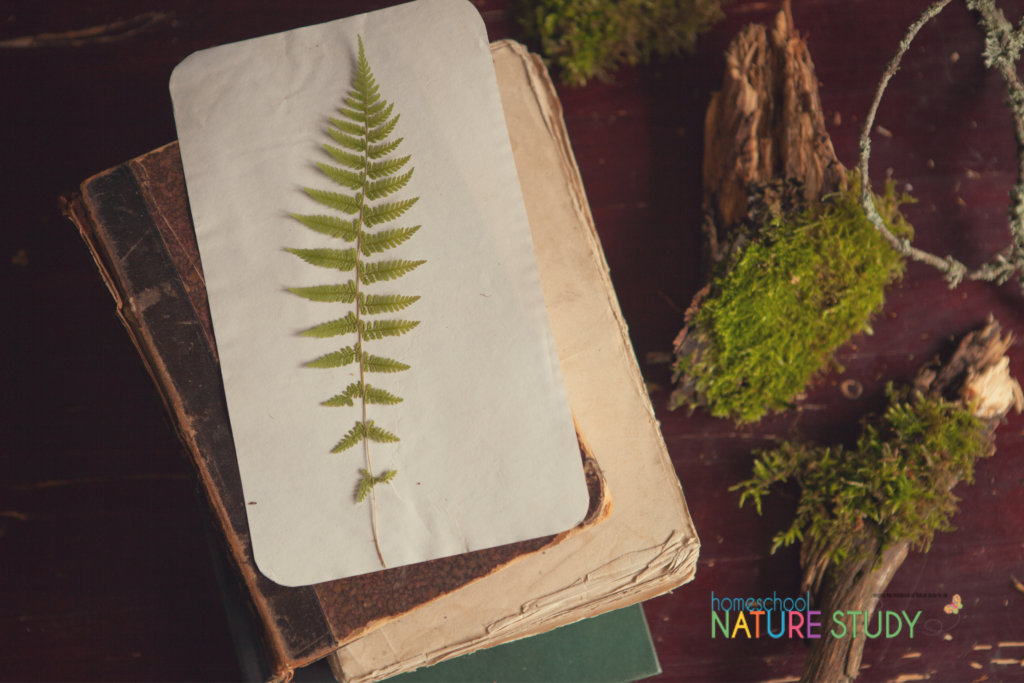
What About Nature Study as Environmental Science?
“…environmental science is the field of science that studies the interactions of the physical, chemical, and biological components of the environment and also the relationships and effects of these components with the organisms in the environment.
– Definition on Study.com
You can definitely use your homeschool nature study as part of your homeschooling high school plans, incorporating aspects of environmental science. Here are some examples of how we did this in our own homeschool:
- Marine Biology Homeschool Study
- Rock Cycle Activities for Middle and High School
- Homeschool High School Nature Study Ideas
- Homeschool Bird Study for Different Learning Styles
I feel as if I just scratched the surface of this topic in this blog entry. I will leave you with one last important thought from a Nature Study Review pamphlet I found on Google Books (written in the early part of the 20th century):
“So long as the sun shines and the fields are green, we shall need to go to nature for our inspiration and our respite; and our need is the greater with every increasing complexity of our lives.”
More Entries On this Topic From My Archives
- Nature Study-Living Science Beyond the Textbooks: This is one of my favorite entries on this topic. The piece sparked a lot of great comments too.
- Nature Study – 3 Steps to a Better Experience: This is an entry that will help you form an idea of how to progressively offer nature study from preschool to high school.
- How to Use the Handbook of Nature Study: For new readers!
- How to Naturally Share Nature Study With Your Child: This is a great entry for beginning nature study families.
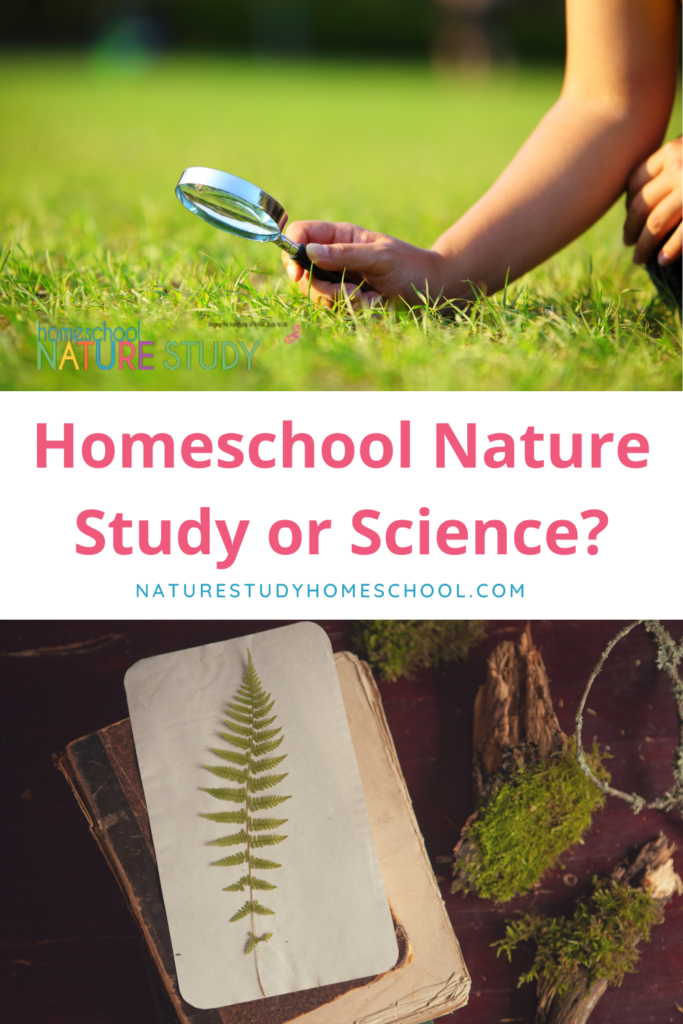
First published November 2016 by Barb and updated by Tricia February 2022.

Brilliant post! I enjoyed reading this, your posts are always so inspirational!
Thanks Probhita! So nice to see a comment from you this morning. I have been brewing this post for a long time and it finally came together. Hugs to you and your family.
I love this! It is so easy to disregard the simple things (copywork, narration, dictation, – and nature study). But their simplicity is a big reason they work so well. These are powerful learning tools.
We couldn’t agree more! thank you for sharing 🙂